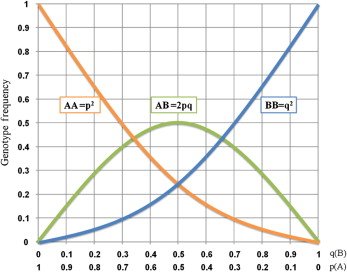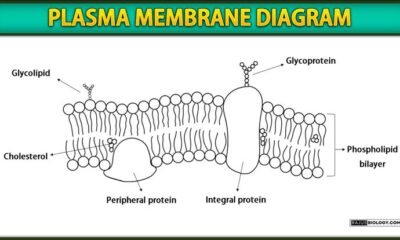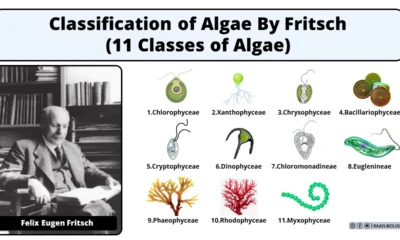Blog
Hardy & Weinberg Principle Note | Evolution Class 12 Notes

In this article we will discuss about Hardy & Weinberg Principle
- This law was proposed by Hardy & Weinberg in 1908
- Allele and genotype frequencies in a population will remain constant from generation to generation. In absence of evolutionary influences
- When gene frequency remain constant generation and generation the population is called genetic equilibrium or hardy Weinberg equilibrium
- The population in genetic equilibrium, the rate of evolution is zero
- Evolution occur only when hardy Weinberg equilibrium is altered
Conditions of the Hardy-Weinberg population are:
- The population must be large.
- Mating must be random, with no selection for certain genotypes.
- There must be no emigration or immigration.
- There may be no mutations.
- There may be no incestuous mating.
Application of hardy and weinberg
- Hardy Weinberg law is represented by simple formula
- Formula 1: P+q=1
- p= Frequency of dominant allele
- q= Frequency of recessive allele
- This formula is used to find out the frequency of dominant allele and recessive allele in a population
- Formula 2: p2+2pq+q2=1
- Frequency of dominant homozygous
- Frequency of heterozygous
- Frequency of recessive homozygous
- Frequency of heterozygous and homozygous in a population can be calculated by another Hardy Weinberg formula

 Blog8 months ago
Blog8 months ago[PPT] Human Reproduction Class 12 Notes
- Blog8 months ago
Contribution of Indian Phycologists (4 Famous Algologist)
- Blog8 months ago
PG TRB Botany Study Material PDF Free Download

 Blog8 months ago
Blog8 months agoCell The Unit of Life Complete Notes | Class 11 & NEET Free Notes

 Blog8 months ago
Blog8 months ago[PPT] The living world Class 11 Notes

 Blog8 months ago
Blog8 months agoPlasma Membrane Structure and Functions | Free Biology Notes

 Blog8 months ago
Blog8 months agoJulus General Characteristics | Free Biology Notes

 Blog8 months ago
Blog8 months agoClassification of Algae By Fritsch (11 Classes of Algae)













